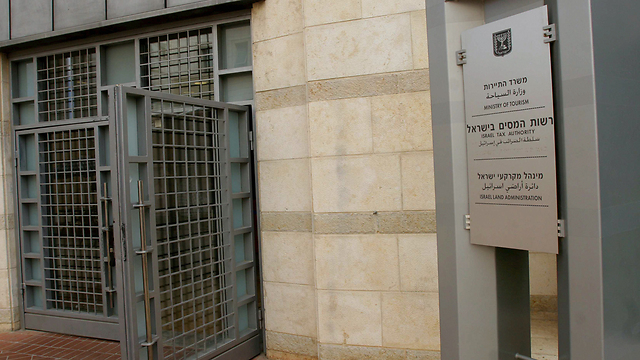
Finance Minister Kahlon and PM Netanyahu
צילום: עמית שאבי
Details of new Kahlon-Netanyahu economic plan unveiled
PM Netanyahu and Finance Minister Kahlon independently come up with economic plans utilizing unexpected tax collection surcharge; plans set to be implemented beginning of 2018, to include income tax reductions for NIS 11,000 earners, decreasing import taxes on non-luxury items, tax breaks for companies and small businesses; Kahlon, Netanyahu projected to wage war on who get credit for plan.
A new economic plan, set to enter into force January 1, 2018, is in the final stages of planning, but can be said to include income tax reductions for persons making NIS 11,000 or less, decreasing import taxes on non-luxury items, tax breaks for companies and small businesses and reducing the country's debts.
The plan will be financed using unexpected tax overcharges, totaling NIS 17 billion this year alone.

Finance Minister Kahlon (L) and PM Netanyahu will attempt to consolidate their disparate economic plans (צילום: אלכס קולומויסקי)
The original intent was to implement a new and far-reaching plan to reduce taxes due to the tax collection surcharge this year. Surprisingly, the Israel Tax Authority is expected to collect a much higher sum than the one appearing in the collection estimate article in the country's 2017 budget.
While calculating the collection forecast, according to which the Israeli budget was constructed at the end of 2016, the significantly high NIS four billion revenue brought in as a result of the Mobileye sale was not yet known, for instance.
Finance Minister Moshe Kahlon, as well as Prime Minister Benjamin Netanyahu, consider the scenario of a surplus in the country's treasury to be an opportunity—on the eve of what may well be an election year—to benefit the public.
As a result, the pair came up with separate plans to reduced taxes in a few weeks' time.
The finance minister's plan, which has thus far been designed almost completely independently of the prime minister or his staff, wishes to reduce income taxes rates starting with incomes of NIS 11,000. The reason is similar to the prime minister's reasoning of reducing the relatively high taxes levied on persons of non-modest incomes to prevent them leaving the country and to benefit those perceived to be providing great contributions to Israel's economy.
The finance minister plans to carry out part of this planned income tax reduction by providing additional tax credit points.
In addition, Kahlon's program includes lowering import taxes on imported items, especially ones not made in Israel, as well as on products used by young couples.
The prime minister and finance minister also intended to make life easier for small businesses, partially by forgoing tax collection on small businesses for a set duration after their founding. The prime minister also intends to reduce corporate taxes within a year or two to 20 percent, in order to encourage international firms to invest in Israel.
In the coming days, Finance Ministry and Prime Minister's Office teams are expected to meet and hold talks on putting together the joint economic plan, conceivably this coalition's last.
A senior economic official said Saturday there can be little doubt going public with the plan will be accompanied by a war on who is to be credited for it, the prime minister or his rival in the Finance Ministry, whose relationship have been tensed for a while now over the latter's political ambitions.












